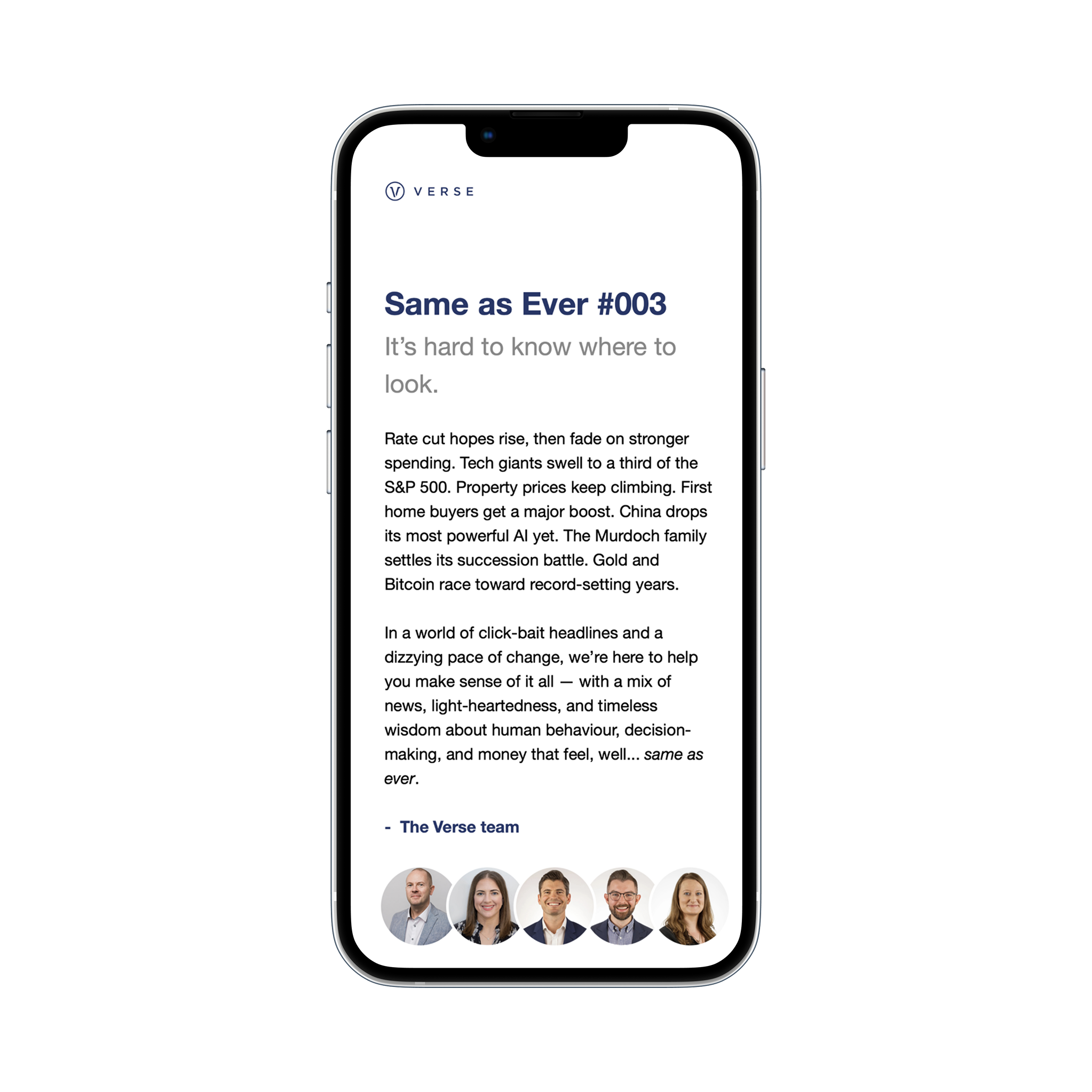Summary
Choosing a financial adviser is a big decision. It’s not just about finding someone who understands money. It’s about finding someone who understands you.
The right adviser can give you clarity, structure and confidence to make smart decisions that support the life you want. But with hundreds of options out there, how do you know who to trust?
In this guide, we unpack six key things to consider when choosing a financial adviser, so you can make an informed, intentional decision that sets you up for long-term success.
1. Does it feel right to you?
Let’s start with something that’s often overlooked: chemistry.
Financial advice is personal. You’ll be sharing your goals, values, fears and money habits. If you don’t feel comfortable, supported and understood, it doesn’t matter how technically brilliant the adviser is — the relationship probably won’t work.
Here are a few questions to consider:
Do they ask good questions?
Great advice starts with deep listening. Is the adviser more focused on selling a product or genuinely curious about your life and what matters to you?
At Verse, we believe the quality of advice is only as good as the quality of the conversation. You want someone who sees you as a whole person, not just a balance sheet.
Do they work with people like you?
Some advisers specialise in certain life stages or professions — retirees, business owners, young professionals, medical specialists, and so on. Others focus on specific services like SMSFs, aged care or complex tax planning.
Whether you're a high-income professional, a successful business owner, an executive, managing a recent windfall or navigating a big life transition like divorce or inheritance, it's important to find someone who understands your context and complexity.
Do they make you feel judged?
Talking about money can be emotional. You might feel behind, unsure or even embarrassed. The right adviser meets you with empathy, not judgement. They create a safe space to ask questions, explore your values and figure things out together.
2. What do their clients say?
Online reviews and testimonials matter — a lot. They’re your window into what it’s really like to work with an advice firm.
Look for consistency across Google Reviews, testimonials and other platforms. Do clients consistently talk about feeling understood, supported and empowered? Do they describe their experience as warm, clear, helpful — or transformational?
Clients often tell us our advice has been "life changing" or "a game changer" — but don’t take our word for it. Look at what real people are saying. Reviews are one of the best ways to validate (or challenge) what a firm says about itself.
Also look for signs of professional recognition. Awards matter. They’re not just shiny trophies — they’re independent endorsements from our peers. When a firm has been repeatedly recognised as a leader in the profession, it’s a strong signal of their commitment to professionalism, care and excellence.
Great reviews and awards don’t guarantee a perfect fit, but they’re a powerful clue that the advice experience is as good as promised.
3. What is their approach to advice?
Financial advice isn’t a one-size-fits-all service. The experience can feel wildly different depending on who you work with and how they approach their craft.
Here’s how to assess whether their style works for you.
Can they clearly articulate their method to getting to know what really matters to you?
Your adviser should be able to explain their process succinctly, and how that process consistently helps clients produce good decisions with their money.
Do they provide personalised, holistic, strategic advice — or give product advice?
You won’t find a financial adviser who says their advice is product-focused. But unfortunately, some still are. There’s a difference between “Which super fund should I choose?” and “How do I make the most of my money to support the life I want?”
Great advice considers your full picture — lifestyle, family, values, goals, tax, estate planning and more. It’s strategic and nuanced.
Do they spend most of their time talking about portfolios and returns?
Having investment knowledge and acumen is a pre-requisite to being a good financial adviser. However, ‘shuffling’ investments around regularly and ‘creating tailored portfolios’ is not where the value of financial advice lies.
If the adviser spends most of their time talking about the portfolio and its returns, you can be certain that their guidance won’t be truly personalised. It won’t be about solving challenges and realising your goals and intentions. If they’re promising or predicting returns, run as fast as you can.
Do they use plain English?
If you find yourself nodding along to words like “non-concessional contribution” or “income stream commutation,” but not actually understanding what they mean, that’s a problem.
Good advice is only valuable if it’s clear. Your adviser should make the complex feel simple, not the other way around.
Can I see an example of a financial plan?
You’ll be surprised at how many financial advisers say they can’t meet this request. Instead, they should be able to give you an example ‘Statement of Advice’ to help you get a clearer sense of what advice looks like at the time of delivery.
4. Are they qualified, experienced and reputable?
Financial advice in Australia is now a profession — and the bar has been lifted. But not all advisers are equally qualified or experienced.
Here’s how to make sure your adviser has the right credentials to support you.
Are they listed on the ASIC Financial Adviser Register?
Every licensed adviser in Australia must appear on ASIC’s Financial Adviser Register. You can use it to check:
- Their qualifications and experience
- The licensee they’re authorised under
- Whether they’ve had any disciplinary action
If someone isn’t on the register, don’t work with them.
What qualifications do they have?
At minimum, advisers must hold an approved degree and pass a professional exam. Many go further, earning certifications like:
- CFP® (Certified Financial Planner) — the gold standard internationally
- FChFP (Fellow Chartered Financial Practitioner)
It’s also worth asking how they keep up with changes in law, legislation and strategy. A good adviser is always learning.
What experience do they have with people like you?
There’s no substitute for lived experience. An adviser who’s helped hundreds of people navigate business exits, growing family wealth, inheritance planning or complex tax issues will bring insights you won’t find in a textbook.
At Verse, our advisers specialise in helping people who want clarity, direction and confidence across the full spectrum of their financial life.
5. Are they influenced by relationships with product providers?
In Australia, all financial advisers must act in your best interests. But some advice may still be influenced by hidden incentives or product ties.
First, let’s define a financial product. It could be a super fund, investment platform, managed fund, insurance policy or other structured financial vehicle that you may be advised to use.
Now ask: Is your adviser connected to the companies behind those products?
Are they owned by or aligned to a product provider?
Some advice firms are owned by or affiliated with banks, super funds or insurance companies. That can influence the products they recommend — not necessarily maliciously, but subtly and structurally.
Ask them:
“Do you have any ownership ties or financial relationships with the providers of financial products you recommend?”
Do they receive commissions or incentives?
While commissions on investment products have largely been banned, they still exist in areas like insurance. These payments can bias advice, even unintentionally.
Ask directly:
“Are you paid or incentivised by anyone other than me?”
At Verse, we’re privately owned and work only for you. No kickbacks. No in-house products. Just advice, aligned.
6. How do they charge and what value do you get?
Advice is an investment. Done well, it can deliver enormous financial and emotional return. But it’s also a cost — so it’s important to understand what you’re paying and what you’re getting.
Are their fees transparent?
Avoid advisers who are vague or evasive about pricing. A good adviser will clearly explain:
- Their initial advice fee
- Ongoing service fees (if applicable)
- Whether fees are flat, hourly, or based on a percentage of your assets
At Verse, we charge fixed fees for transparency and fairness. You’ll always know exactly what you’re paying — and why.
Are you paying for product placement?
Some advisers appear low-cost upfront, but then earn money by moving you into a specific product or platform that pays them a commission.
Ask them:
“Do you receive commissions or kickbacks from any of the products you recommend?”
If the answer is yes, be cautious — as it can create a conflict of interest.
Is the value clear?
Warren Buffett once said: “Price is what you pay. Value is what you get.”
And when it comes to advice, value means different things to different people. For some, it’s about confidence and clarity. For others, it’s retiring early, making smarter investment decisions or avoiding costly tax mistakes.
We’ve seen time and time again: when the fit is right, and the advice is aligned, it can be truly life changing.
Final thoughts
Choosing a financial adviser isn’t just a money decision. It’s a life decision.
The right adviser helps you make confident, values-aligned choices. They simplify the complex, support you through transitions and ensure your money is working for the life you want to live.
Take your time. Do your research. Ask questions. And when you find someone who feels like the right fit — someone who’s capable, caring and clearly has your best interests at heart — you’ll know.
Thinking about getting advice?
We’d love to help.
At Verse, we provide truly personalised advice and guidance for people who want to make the most of their money and life — whether you’re a high-income professional, business owner, executive or preparing for a big transition.
If you sounds a bit like you, let’s chat.











